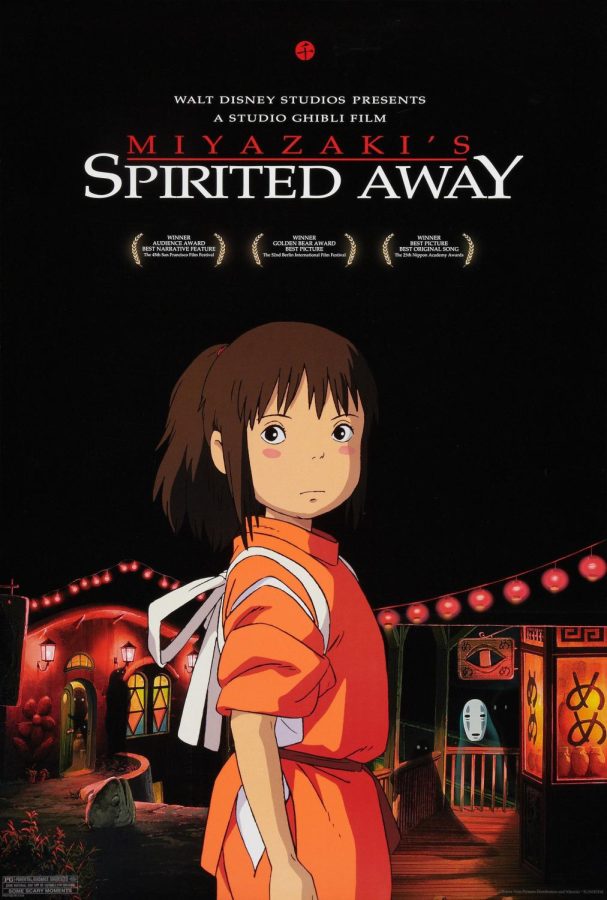“Spirited Away” should be celebrated, even 20 years after it’s release
Spirited Away, released to the U.S. on Aug. 31, 2002, won “Best Animated Feature Film” at the 2003 Oscars.
October 25, 2021
My first viewing of “Spirited Away” was at the YMCA daycare when I was 7-years-old. I had been half-paying attention to it until an infamous and horrifying scene where the protagonist’s parents are turned into pigs, changing the tone of the film entirely, and from that moment forward, I was captivated.
Unfortunately, and despite my pleas to my mom, I had to leave before I could finish the movie; the experience, however, was unforgettable.
The following week, I was able to watch the movie as many times as I wanted (which was a lot) with my brand-new DVD copy my parents bought after eventually caving in to my begging. This led to my falling in love with “Spirited Away.”
My love for Studio Ghibli’s “Spirited Away” cannot be understated. The film, released in 2001, received monumental praise and success, with millions finding the bizarre animated feature to be absolutely, unequivocally compelling.
With it’s 20th anniversary approaching, no time is better to revisit the movie and remember why it’s so great.
I think a huge reason why so many cherish “Spirited Away” has to do with just how different it is, at least to a Western audience.
As with just about every Ghibli movie, the world building in “Spirited Away” is unmatched. Director Hayao Miyazaki’s innovative, fantastically creative approach to the movie is refreshing, believable, and exciting, which is no shocker–just about everything Miyazaki and Studio Ghibli create is tremendous.
The hand-drawn art style is brilliant, the scenery throughout the entire movie is absolutely breathtaking and the characters are written with depth and relatability. “Spirited Away” is genuinely a movie that all ages and walks of life can enjoy.
The music, composed by the wonderfully talented Joe Hisaishi, is awe-inspiring and incredibly iconic. Hearing “One Summer’s Day,” the most recognizable number in the film, instantly carries the viewer into world of the film.
Chihiro, the protagonist, is displayed realistically–she is a kid who goes through incredible turmoil and hardship, and she acts accordingly, making her relatable and genuine to the audience. I think children protagonists are oftentimes far too mature and capable right out of the gate, but throughout the entirety of “Spirited Away” Chihiro earns these traits; they are not handed to her.
Even 20 years after it’s initial release, “Spirited Away” does more than just hold up; it’s a film that was so ahead of its time in so many ways that it continues to be a refreshing and exciting watch.
